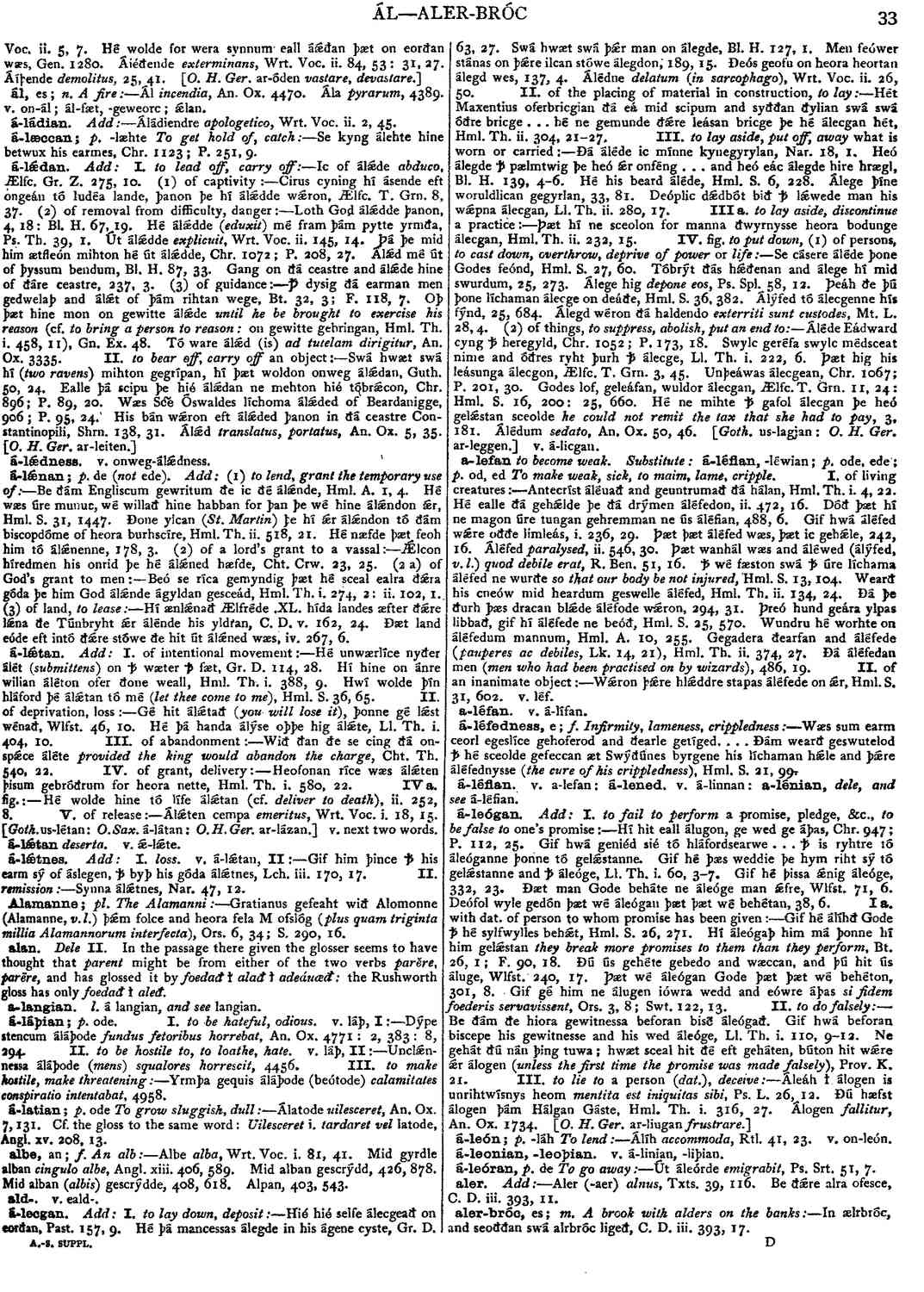á-leógan
-
Hí hit eall álugon, ge wed ge áþas,
- Chr. 947; P. 112, 25.
-
Gif hwá geniéd sié tó hláfordsearwe . . . ꝥ is ryhtre tó áleóganne þonne tó gelǽstanne. Gif hé þæs weddie þe hym riht sý tó gelǽstanne and ꝥ áleóge,
- Ll. Th. i. 60, 3-7.
-
Gif hé þissa ǽnig áleóge,
- 332, 23.
-
Ðæt man Gode beháte ne áleóge man ǽfre,
- Wlfst. 71, 6.
-
Deófol wyle gedón þæt wé áleógan þæt þæt wé behétan,
- 38, 6.
- I a. with dat. of person to whom promise has been given :---
-
Hí áleógaþ him má þonne hí him gelǽstan
they break more promises to them than they perform,
- Bt. 26, 1; F. 90, 18.
-
Ðú ús gehéte gebedo and wæccan, and þú hit ús áluge,
- Wlfst. 240, 17.
-
Þæt wé áleógan Gode þæt þæt wé behéton,
- 301, 8.
-
Gif gé him ne álugen iówra wedd and eówre áþas
si fidem foederis servavissent,
- Ors. 3, 8; Swt. 122, 13.
-
Be ðám ðe hiora gewitessa beforan bisc̃ áleógað. Gif hwá beforan biscepe his gewitnesse and his wed áleóge,
- Ll. Th. i. 110, 9-12.
-
Ne gehát ðú nán þing tuwa; hwæt sceal hit ðé eft geháten, búton hit wǽre ǽr álogen (
unless the first time the promise was made falsely
),- Prov. K. 21.
-
Áleáh ł álogen is unrihtwísnys heom
mentita est iniquitas sibi,
- Ps. L. 26, 12.
-
Ðú hæfst álogen þám Hálgan Gáste,
- Hml. Th. i. 316, 27.
-
Álogen
fallitur,
- An. Ox. 1734,
Bosworth, Joseph. “á-leógan.” In An Anglo-Saxon Dictionary Online, edited by Thomas Northcote Toller, Christ Sean, and Ondřej Tichy. Prague: Faculty of Arts, Charles University, 2014. https://bosworthtoller.com/38448.
Checked: 0